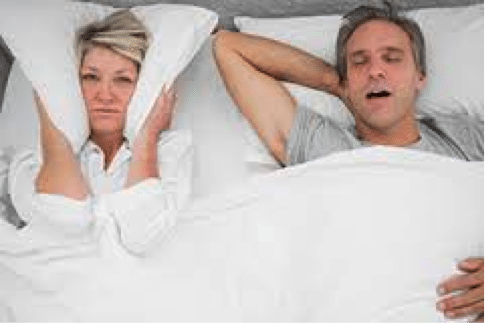 Sleep apnea is a serious medical condition. If you are diagnosed with sleep apnea it is important for you to understand the causes and complications associated with it if it goes untreated. There are hundreds of different treatments: some are proven while others may be little more than hocus pocus. At The Snoring Center, we utilize several minimally invasive, office-based treatments to address the causes of sleep apnea. Over the years, we have helped thousands of patients find relief from sleep apnea and problem snoring
Sleep apnea is a serious medical condition. If you are diagnosed with sleep apnea it is important for you to understand the causes and complications associated with it if it goes untreated. There are hundreds of different treatments: some are proven while others may be little more than hocus pocus. At The Snoring Center, we utilize several minimally invasive, office-based treatments to address the causes of sleep apnea. Over the years, we have helped thousands of patients find relief from sleep apnea and problem snoring
So what is sleep apnea?
Sleep apnea occurs when the muscles in the back of the throat relax during sleep. When this happens the airway closes and the snorer can’t breathe. The brain senses this inability to breathe and wakes the snorer to re-open the airway. The awakening is usually so short, the snorer doesn’t remember that it happened.
Here is the scary part, these awakenings can last more than 10 seconds and they can occur several times each hour. Again, the snorer may not know this is happening.
It’s just Snoring Though
Not really. There’s a lot more to it than that. There are a number of serious medical complications associated with sleep apnea. These include:
· High blood pressure or heart problems. The sudden drops in blood oxygen that occur during interrupted periods of breathing increase blood pressure and put a strain on the cardiovascular system. The worse the sleep apnea, the higher the risk of high blood pressure and the increased risk of stroke.
· Daytime fatigue. Restorative sleep is impossible with sleep apnea. Fatigue, severe daytime drowsiness, irritability and reduced concentration are common results.
· Liver complications. Sleep apnea sufferers are more likely to have abnormal liver functions and potential scarring.
· Exhausted sleeping partners. Studies have shown the sleeping partner of a person with sleep apnea lose, on average, one hour of sleep each night.
· Complications with surgery and medications. Sleep apnea is problematic with some medications and general anesthesia. The breathing problems associated with sleep apnea are exacerbated when the snorer is sedated and lying on their back. Undiagnosed sleep apnea is especially dangerous in this situation.
· Sleep apnea sufferers may also complain of morning headaches, mood swings, depression, memory problems, the need to urinate frequently during the night and a decreased interest in sex.
Treating Sleep Apnea
The preferred treatment for sleep apnea is Constant Positive Airway Pressure or CPAP. The problem with CPAP, however, is that many people can’t tolerate wearing the CPAP mask. The CPAP becomes a deterrent to refreshing sleep rather than a solution.
The Pillar® Procedure is an alternative to CPAP. In this minimally invasive procedure, the physician inserts implants into the soft palate. These implants prevent the soft palate from over-relaxing during sleep, which is the root cause of snoring. The procedure can be performed in less than 30 minutes and The Snoring Center’s board certified physicians can diagnose, consult and perform the treatment on the same day.
The Pillar Procedure is just one of the medically advanced, minimally invasive, office-based procedures our physicians utilize to treat problem snoring. These are:
- Coblation Turbinate Reduction
- Palate Coblation
- RFA
- Laser Tonsillectomy
- Home Sleep Study
- Oral Appliances
- Snoring Surgery
- CPAP
Sleep apnea is a serious health issue and it deserves immediate attention. If you think you have sleep apnea, consult with your primary physician or call The Snoring Center. Improve your health and start sleeping better today.

